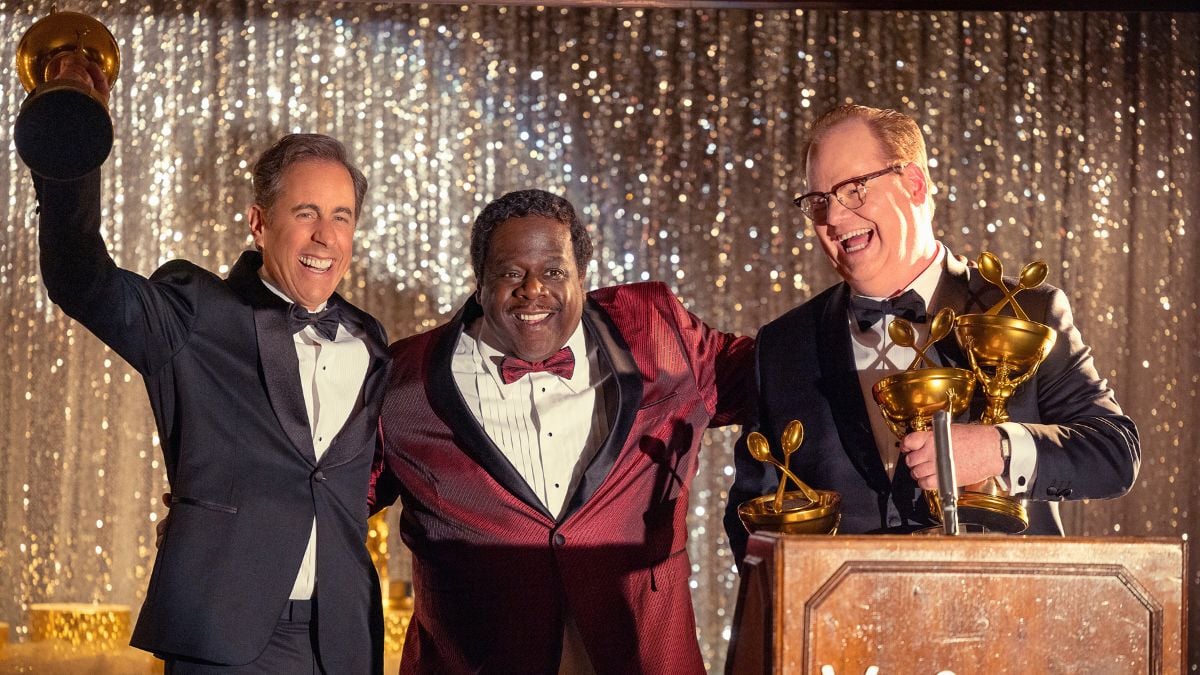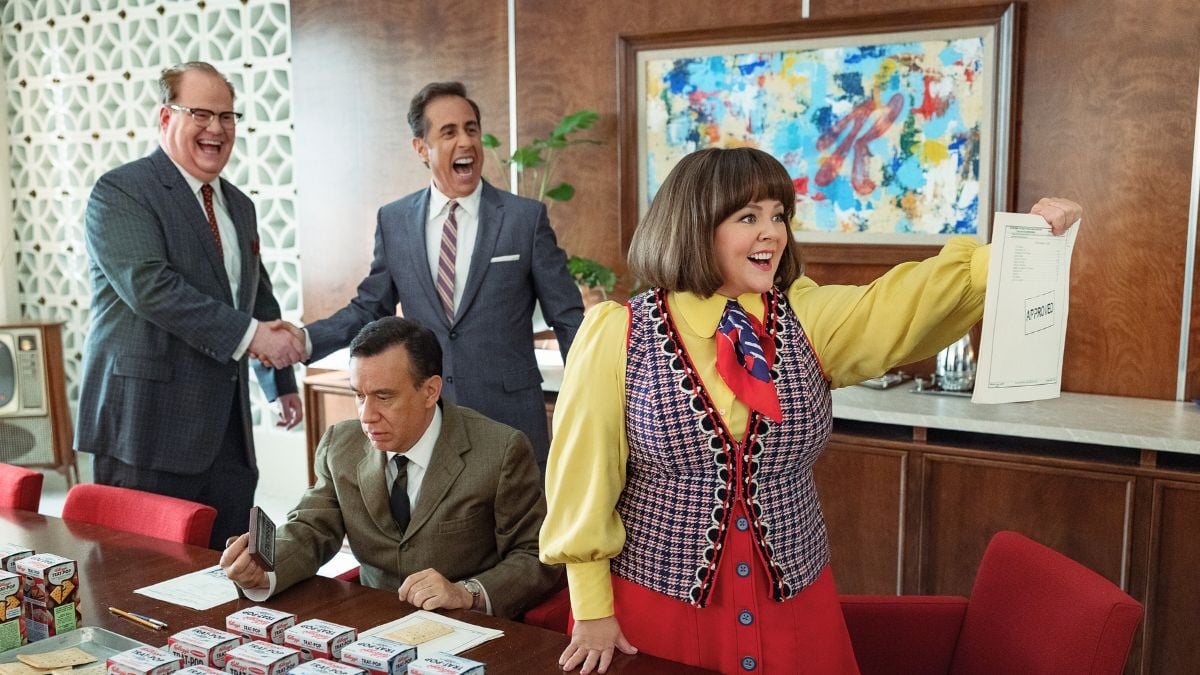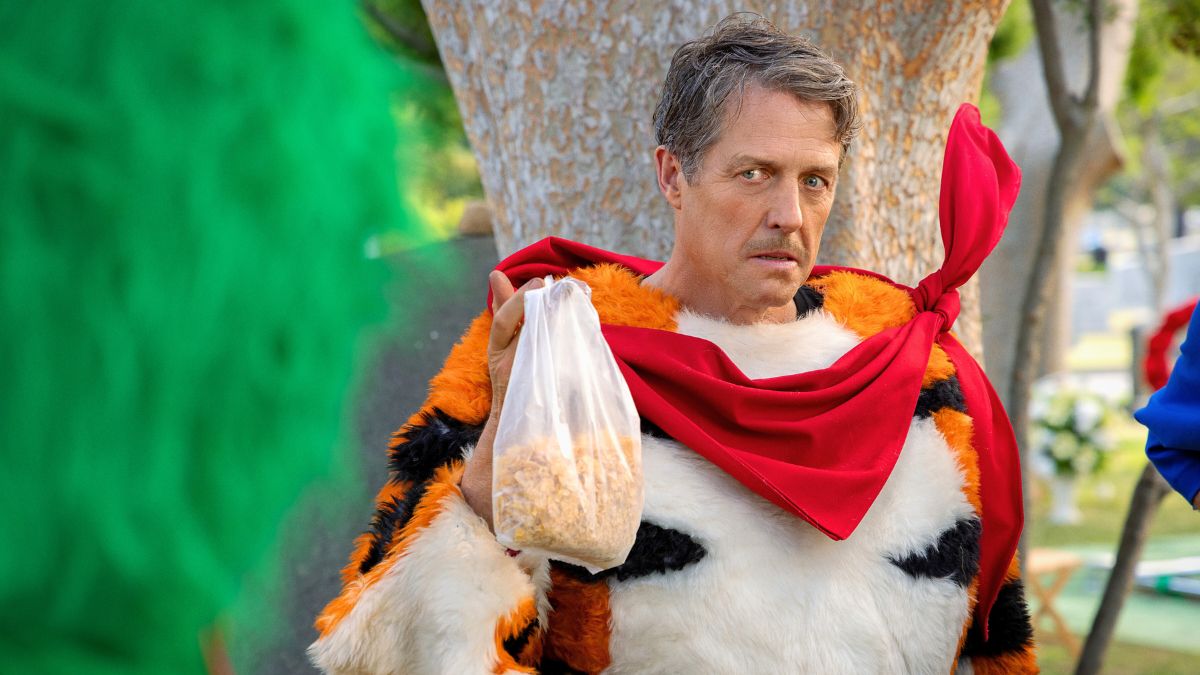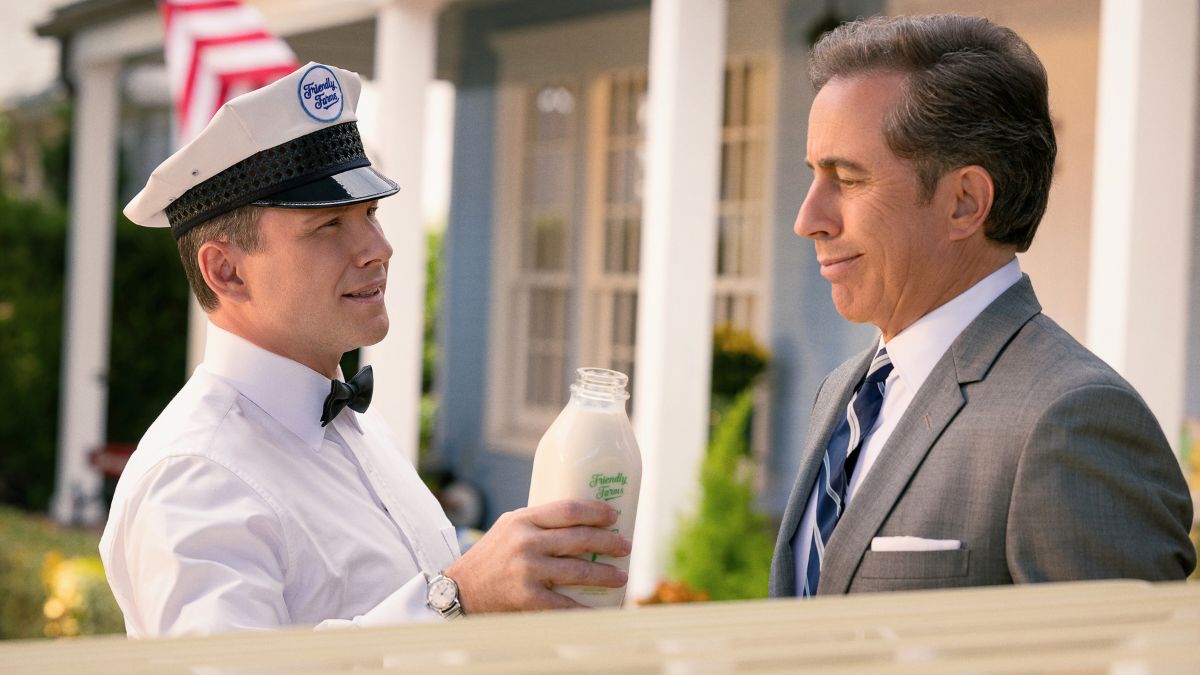Jerry Seinfeld is so passionate about Pop-Tarts that he decided to make an entire movie about them and have it be his debut behind the camera as a director.
Unfrosted premiered on Netflix to a less-than-enthusiastic reception from both critics and audiences. It’s currently sporting a disappointing 41% rating on the Rotten Tomatoes critic meter, paired with a slightly better but equally middling 50% score from audiences.
Jam-packed with celebrity cameos and rapid-fire jokes and bits, Unfrosted has about as many connections to the real-life history of the brand it spotlights as 2023’s Barbie.
So how much of Unfrosted is actually true?

There is a lot going on in Seinfeld’s Unfrosted, but we’re sad to report the cereal business isn’t actually that eventful. There are no menacing milk and sugar mafias, lab-grown sentient ravioli, or janitor spies in this story, but there is still a fierce rivalry between its two protagonists.
Post and Kellog’s did race each other to launch a shelf-stable breakfast pastry but despite the accurately portrayed proximity between the companies’ two headquarters in Battle Creek, Michigan, there was no espionage involved.
In the film, Amy Schumer’s Marjorie Post (a real person) steals valuable documents from Jerry Seinfeld’s Bob Cabana (not a real person, but we’ll get to that in a minute) that detail the first findings of Kellog’s fruit pastry experiments. Post then closes in on a working formula before Kellog’s catches on, which leads the latter to hire a team of experts to get back into the race.

In real life, Post was actually the pioneering brand behind the recipe, when Stan Reesman took inspiration from dog food to develop a dehydrated fruit jam filling that would have a longer shelf life. Excited about the idea, the company announced the product as Post’s Country Squares months before they had samples ready to go on sale. This gave Kellog’s enough time to call on Bill Post (a Keebler employee unrelated to the cereal juggernaut’s rival company) who then developed a similar product and called it the Pop-Tart.
The product wasn’t actually called Trat-Pop first (who would ever think that was a good name?!), and Walter Cronkite wasn’t involved in giving it its ultimate name. Instead, Kellog’s were inspired by the pop art movement of the time. The movie makes a reference to the connection by having Andy Warhol (played by Dan Levy) attempt to assassinate Seinfeld’s character as he screams “Your 15 minutes is up, Cabana. Only I can be derivative.” Of course, the bullet is stopped by a Pop-Tart he had in his chest pocket.

Plenty of characters in the film are based on real people, whether or not they borrowed their names. The fab five hired by Bob Cabana and Melissa McCarthy’s Stan were not at all involved with Pop-Tarts but did exist: Harold von Braunhut (Thomas Lennon) did market the Sea-Monkeys and was, in fact, involved with White Supremacist organizations; Jack LaLanne (James Marsden) was the fitness influencer of his time; Steve Schwinn (Jack McBrayer) isn’t real, but his bicycle company is; Chef Boy Ardee (Bobby Moynihan) is inspired by Ettore Boiardi, the creator of canned pasta brand Chef Boyardee; and Tom Carvel (Adrian Martinez) did invent soft ice-cream.
Then there’s Hugh Grant’s curious cereal box mascot voice actor character, Thurl Ravenscroft, who really existed. Seinfeld has said the idea of such a serious-looking actor doing voice-overs for Tony the Tiger was ripe with comedic possibilities, but apart from their appearance, Grant’s character and the real Ravenscroft don’t have much else in common. The real Tony the Tiger never unionized cereal box mascots or incited a riot.
“We wanted to keep some of the reality of what happened. This really did happen in Battle Creek, Mich., where Kellogg’s and Post were located, and they did compete to come up with this product, but the rest of our story is complete lunacy,” Seinfeld told Netflix.
Unfrosted is currently streaming. You can read our two-star review of the film here.

